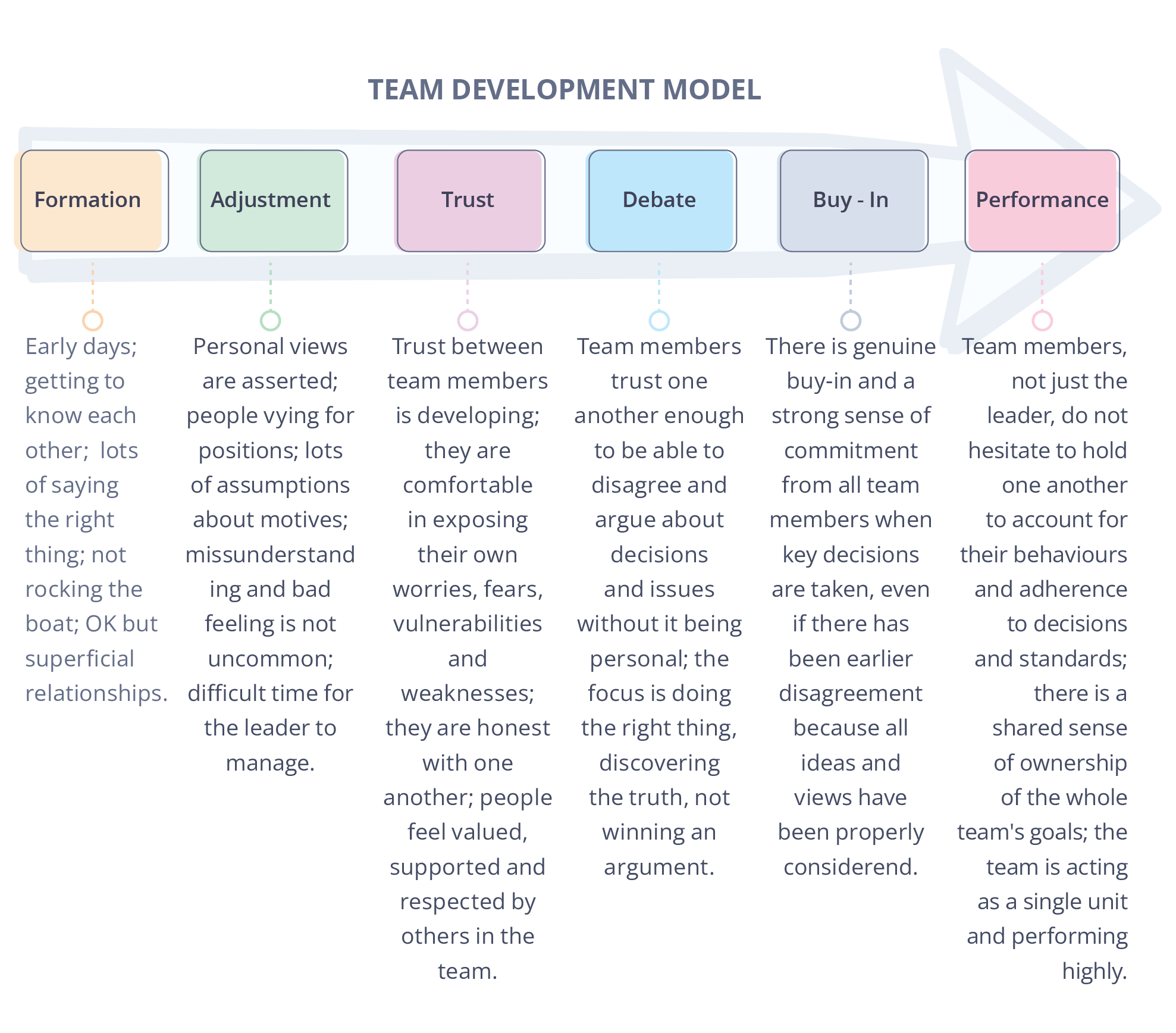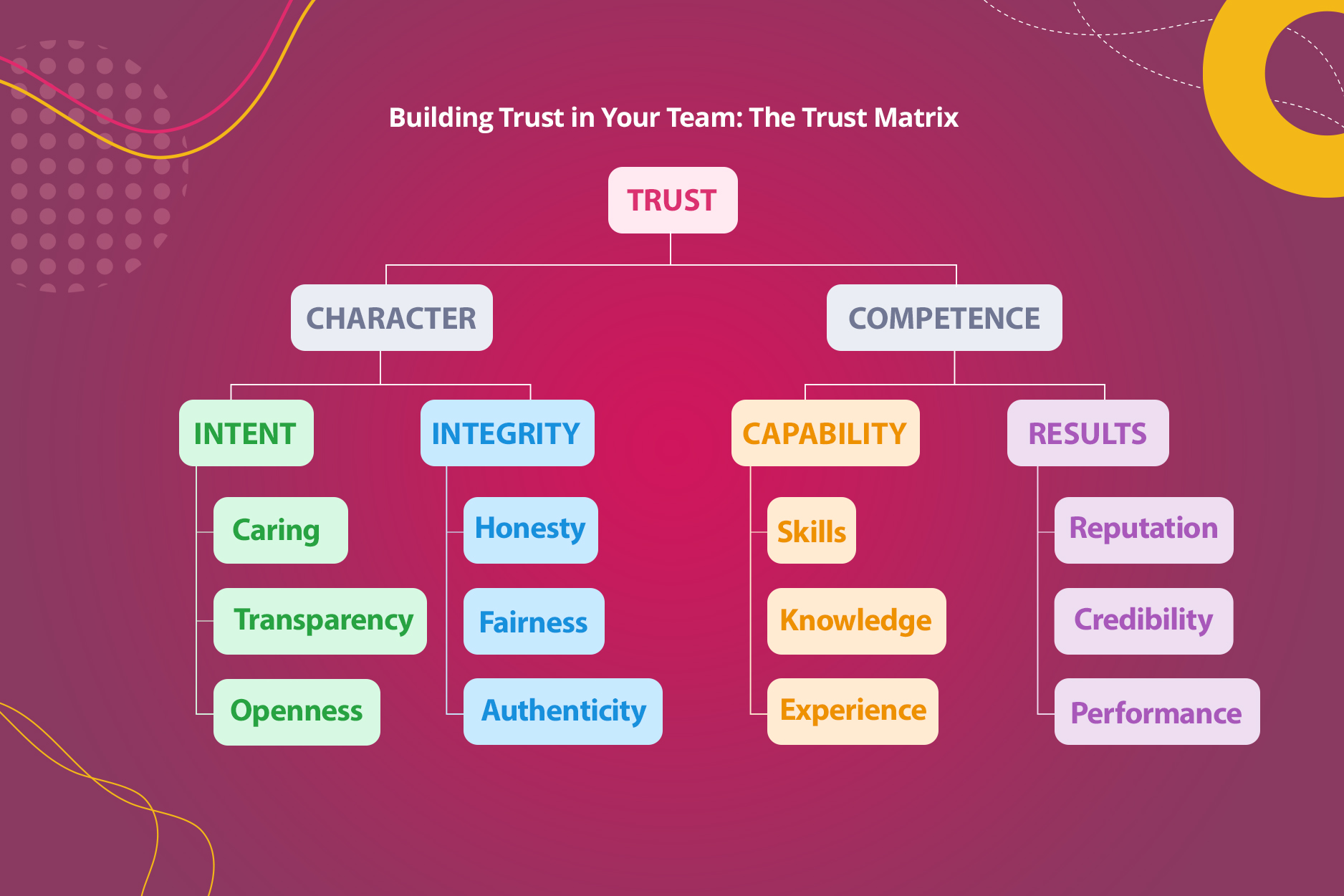What makes a team efficient and effective?
The success of an effective team in education is determined by the positive impact it has on children and other education stakeholders. To know where to go, a team needs a shared vision and purpose, which the leader shapes. Without a purpose, people can become confused or unmotivated. Team members need to feel safe, to know that they can be vulnerable, that they can make mistakes, and so they can carry out their work with confidence. Confidence makes things work in a team. In an effective team, everyone actively participates in getting tasks and projects done.
Team goals are properly understood by all team members, and each member seeks solutions to problems and acts individually.Each team member needs to be listened to, receive feedback and trust the actions and opinions of their colleagues. An effective team is willing to take risks, support the common goal and communicate continuously, especially if difficulties arise. Team decisions are made in an organised way, with prior information and agreement of all involved.
Differing opinions are taken into account and discussed in a way that does not affect the smooth running of future work or projects. The leader creates the vision, common goals and establishes trust among the team.
In an effective team, everyone actively participates in activities and projects. Team goals are understood correctly by all team members, and each team member looks for solutions to problems and takes action individually. Each team member needs to be listened to and receive feedback and trusts the actions and opinions of their colleagues. An effective team is willing to take risks, support the common goal and communicate continuously, especially if difficulties arise. Team decisions are made in an organised way and with prior information and agreement of all involved. Differing opinions are taken into account and discussed in such a way that they do not affect the smooth running of things or future projects.
What can the team gain from debates?
A 2004 study, The Liberating Role of Conflict in Group Creativity: A Study in Two Countries, in which participants, divided into teams, were tasked with finding solutions to a problem, found that teams that debated their ideas produced, on average, 25% more solutions than the other teams involved. Research shows that dissent, debate and competing opinions have a positive value, stimulating divergent and creative thinking. Perhaps more importantly, allowing people to criticise and debate can foster an atmosphere conducive to generating new ideas.
"Healthy debates are those that have a focus on argument and generating possible alternatives, not a focus on arguing. When we even force ourselves to find the right arguments, we train our critical thinking and creativity. This process has a double meaning in healthy debate, as we also need to critically examine the ideas of others" writes Andrew Gurevich in Critical Thinking.
If we want to articulate a particular thought and reinforce it with arguments, we need to present it to others.
Another element that can lead to the shaping of an effective team is related to each member's ability to know their own superpowers, but also their own limitations, to see themselves honestly, to own their potential and to address their minuses. Within the team, the leader can assume the role of scanning the situation. This idea of observing, scanning was proposed by authors Erica H. James and Lynn Perry Wooten in their book The Prepared Leader.
In order for the team to be in a continuous process of growth, the leader needs to observe, once in a while, what the progress is, what the setbacks have been, what has happened and what might be next. It is also the leader who prepares a strategy for the future, creating a structure around discussions, forecasts and planning how the team will deal with specific future scenarios.
"The ability to effectively scan the environment for threats is a key component that helps leaders anticipate and, in some cases, prevent a crisis" say James and Wooten. The tool is also useful for all of us: to become more self-aware in our own work, to prepare for change, and to be ready for what's coming.
How do you build an effective team?

The first stage is training. At this stage, people get to know each other, relationships are good but can be superficial and the best ways of relating and communicating are sought. The second stage is the adjustment stage, when everyone reveals their personal views, when misunderstandings or gaps in communication may arise. This stage is quite difficult for the leader and requires attention in managing it.
Next comes the confidence-building stage, where team members become more confident in exposing their concerns, fears, vulnerabilities and weaknesses. At this stage it is very important that members are honest and feel understood, appreciated, valued and supported by their colleagues.
In the debate stage, team members trust each other enough to express their opinions, even if they disagree with each other, and to discuss. At this stage, everyone involved understands that it is not important who is right, but that things are done well. In the team building stage there is a strong sense of collective responsibility. Key decisions are now taken so that the performance stage can be moved on, where the team acts as a whole and achieves the desired results. Performance is closely linked to vision, and each stage needs to be adapted and readjusted in line with this vision.

Leadership for Education serves as an introduction to a number of key educational leadership strategies.
It is designed for teachers, educators and school leaders who feel they need a toolkit to create a vision and build a trusted team.
Discover the whitepaper
The main element that binds an effective team together is trust
Organisations and institutions that operate according to a set of values generate the desired changes; they are more goal-oriented and productive and have higher levels of employee engagement.
What are the elements that influence trust between the leader and his/her team members?

Trust is the main ingredient in effective communication and is the foundation that creates all relationships. According to Stephen Covey, the character elements of trust are: intention, integrity, honesty, caring, transparency, fairness, openness and authenticity. The elements of competence trust are capability, results, skills, reputation, knowledge, credibility, experience and performance.
”Trust is the glue of life. It is the most essential ingredient for effective communication. It is the basic principle that underpins all other relationships.”- Steve Covey
In the process of building trust, the leader needs to think about his/her own character and why someone should believe in him/her as a person. This could include his/her honest, caring nature, fairness and authenticity. Added to this is the competence of the leader (why should others believe in and follow this person chosen as a leader), and this revolves around reputation, skills, knowledge, credibility.
Trust within the team is built through direct discussion, respect consistently shown, transparency, accepting mistakes, confronting reality, clarifying expectations, active listening, keeping promises, and extending trust to all team members. In different cultures, all of these elements can mean something different and it requires adaptation on the part of the leader, but also on the part of their people. Trust develops over time as team members get to know each other, feel comfortable sharing their fears, vulnerabilities and weaknesses, are honest, open and feel valued and listened to. A leader has a responsibility to create the right environment to build trust within the team. A leader has a responsibility to create the right environment to build trust within the team. In the first leader-team interaction, the impression the leader leaves behind is very important: physical appearance and dress, the way he/she behaves and treats others, etc. are the first elements to be addressed.
The next things that attract attention are body language, the way he or she communicates, followed by the respect the person shows to others. It is important that the collegial relationship is based on honesty and compassion, as these are the key elements that build trust. Setting a common goal and establishing a strategy to achieve that goal becomes a collective responsibility respected by all team members. A good leader is concerned with the long-term development of team members, helps them identify their strengths and weaknesses, encourages them to create long-term goals and provides ongoing feedback and advice. Regardless of the method or tactic adopted, a good education leader must always have the end goal in mind, which is linked to the impact their actions and the team's actions have on children and learning.
According to Helen O'Donoghue, a team is built through trust, and one of the most effective ways to improve a team is through the coaching process. A simple equation for the trust that underpins a team is the ratio of credibility, safety, intimacy and orientation towards others. A leader's credibility is about doing what they say, safety is about supporting team members, and intimacy is about establishing trust. Orientation towards others is what builds the team's trust in its leader.
When we succeed in forming effective and balanced teams, working together becomes easier and often faster. People with the same vision and purpose complement and support each other in the process to ensure the success of the whole. In education, we need collaboration and cooperation to build processes that are qualitative and appropriate for today's contexts. When we manage to form effective and balanced teams, working together becomes easier and often faster. People with the same vision and purpose complement and support each other in the process to ensure the success of the whole. In education, we need collaboration and cooperation to build processes that are qualitative and appropriate for today's contexts.
When the school leader succeeds in attracting around him or her people who share a common vision and mission, he or she succeeds in building an effective team and achieving the goals set and established together.
Kinderpedia supports leadership in education by providing school leaders with the tools and insights they need to make informed decisions and effectively manage their schools. Some of the ways Kinderpedia supports school leadership include time saving, improved visibility and transparency and streamlined decision making. Kinderpedia fosters better communication and collaboration between school leaders, teachers, and parents, ensuring that everyone is working together towards common goals.












